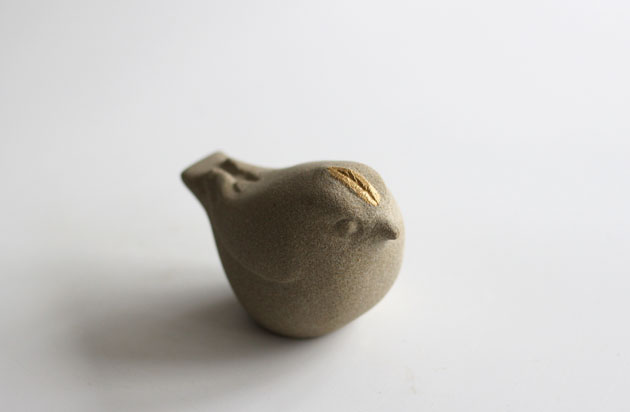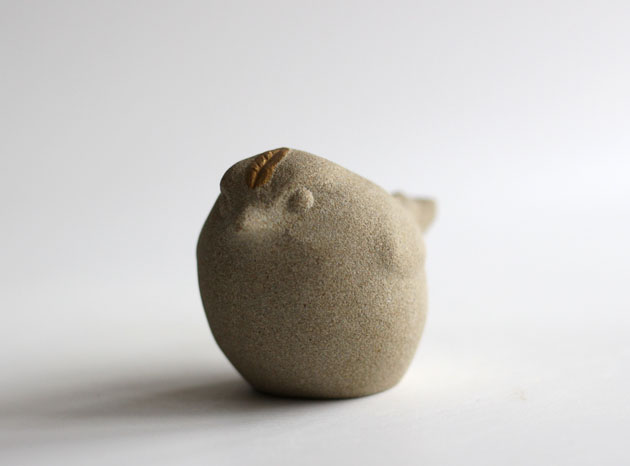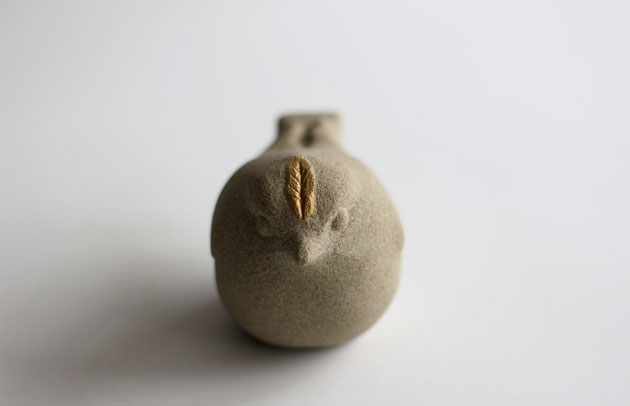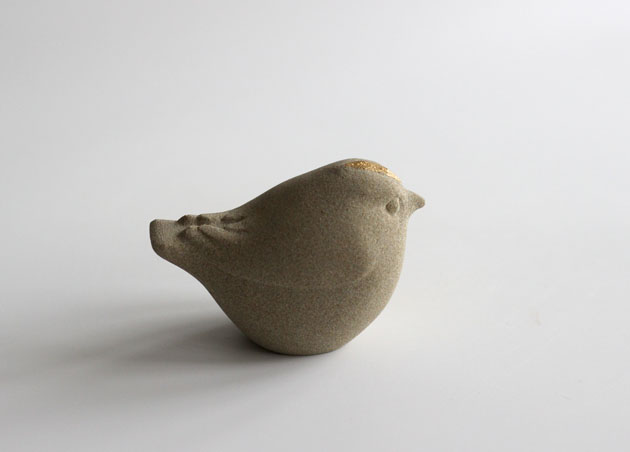Goldcrest

This is the first of what I plan will be a flock of Goldcrest – or – as I think I’ll call it, a Castle of Kinglets!
A ‘Castle’, ‘Court’, or ‘Princedom’ are collective names for Goldcrest, from the bird family Kinglets and Firecrests.

Goldcrests are the UK’s smallest bird and have a golden coloured stripe on the top of their heads, the feathers of which they use for display at breeding time. It is a tiny, round bird with dull olive-green upperparts, and buff to white colouring underneath.
They are found chiefly in coniferous woodland, favouring spruce, fir and pine where they avidly flit about collecting insects with their thin, pointed beaks from between the pine needles.

Goldcrests are keen nesters, producing a clutch of between nine and eleven eggs in late April. Often they will start a second brood before the first has fully-fledged. Their nests are cup-shaped and made from moss, lichen, spiders webs and feathers.

Goldcrest sculpture carved in Yorkstone – 4″ x 2 1/2″ x 2 3/4″ – with a gilded crown.
Shop Goldcrest sculpture

2 Comments
I love the idea of a Castle of Kinglets, Jennifer, and the gold stripe seems a perfect addition to these beautiful sculptures. I find collective nouns so fascinating, especially ones pertaining to our wild creatures. We rarely see a Goldcrest (in normal times), and haven’t seen one for ages. We were thrilled though, just before the last lockdown, to encounter our first Crossbills here on a Suffolk heath. When we used to stay in the Pickering area, we were often told that these could sometimes be seen around Stape, but they always eluded us.
Thankyou – Aren’t the names interesting, I find myself lost in the lore and history of them. So interesting you mention Crossbill, as I’m making this little series for an exhibition I’m part of Moor and Forest, and one of the birds I want to carve is a Crossbill – lovely to hear you saw one (I never have) though as you say they’re reported to be around in the North York Moors.